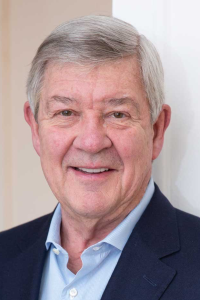As the global community continues to grapple with the coronavirus (COVID-19), the Atlantic Council is open for business. Our business, meetings, and events, however, are occurring virtually. For more information, please read an update from our President and CEO.
Event Recap
On March 5, 2021, the Atlantic Council Global Energy Center hosted a conversation on the architecture for REDD+ Transactions (ART), a Paris Agreement-aligned platform aiming to direct private capital to jurisdictional-scale Reducing Emissions from Deforestation and Forest Degradation (REDD+) programs. Mary Grady, ART director, and Frances Seymour, ART board chair and distinguished senior fellow with the World Resources Institute, delivered opening remarks. Grady then initiated a lively panel discussion with Mario Boccucci, head of the United Nations Program on Reducing Emissions from Deforestation and Forest Degradation (UN-REDD) secretariat, and Enric Arderiu Serra, vice president of low carbon trading at bp. George Frampton, senior fellow at the Global Energy Center, provided introductory comments and co-moderated the panel with Seymour.
Seymour delivered a primer on REDD+, a program with “the potential once-and-for-all to bring tropical deforestation to a close.” Arguing “we cannot reach the goals of the Paris Agreement without dealing with forests,” Seymour recommended conservation and restoration of tropical carbon sinks as the most cost-effective means of climate mitigation. She then detailed REDD+’s pay-for-performance scheme, which rewards jurisdictions for combating deforestation with payments above the opportunity costs of not developing forested lands.
ART avoids the problems of previous offset schemes, suggested Seymour, because its jurisdictional scale can address the “underlying drivers of deforestation” through government action. REDD+’s size and innovative verification measures can induce “finance-at-scale” from private-sector buyers to “provide a complement, in the near-term, to the abatement of fossil fuel emissions” for hard-to-abate sectors committed to reducing net emissions.
Grady elaborated on ART’s verification regime, which seeks to “create confidence in the environmental and social integrity of REDD+ to attract private sector capital at scale.” Combining robust monitoring with the incentives to move jurisdictions “to do what only governments can do,” ART promotes macro-level land-use regulations to ameliorate risks inherent in smaller projects, such as deforestation leakage and conservation reversals. Moreover, argued Grady, by adapting a regulatory framework to REDD+ rather a diplomatic one, ART “eliminates the protracted political negotiations in place of having more business-like transactions.”
Grady began the panel discussion by introducing The REDD+ Environmental Excellence Standard (TREES), requirements designed to lessen risks inhibiting private capital flows. Serialized credit tracking and independent third-party verification enables TREES to enforce social and environmental safeguards, leaving private buyers “assured of the integrity” of REDD+ transactions. An updated “TREES 2.0” goes further by expanding crediting to reward high forest cover, low deforestation countries and facilitating participation by indigenous territories. Such developments, Grady noted, have invited interest from groups representing hard-to-abate industries like the Carbon Offsetting and Reduction Scheme for International Aviation (CORSIA).
Arderiu Serra followed with a fossil fuel sector perspective on the program. Viewing REDD+ as “a key element in meeting the Paris goals,” he noted that, among a myriad of offset schemes from which bp can choose, “jurisdictional approaches give you more confidence,” since “you can actually achieve high-quality credits from REDD+ programs.” Suggesting clearer risk management under REDD+, Arderiu Serra commended its reliable enforcement and alignment with national deforestation policies, versus project-based systems which are riskier for corporate buyers.
Boccucci then presented on UN-REDD, the United Nations initiative that prepares jurisdictions for REDD+ participation. Surveying the transition “from a decade of goodwill, negotiations, and testing of forest and climate solutions into a decade of implementation at scale,” Boccucci explained UN-REDD’s task of marrying exploding demand for offsets “with standards that are going to ensure the quality of those emission reductions.” Boccucci suggested such reductions required the reorienting of “an entire economic development pathway,” explaining that the “need for finance . . . be at a commensurate scale” to influence growth strategies.
A question-and-answer segment explored the US role in REDD+, expansion of the program, and challenges of divergent offset schemes. With Washington re-joining the Paris Agreement being “good news for climate action more generally,” said Seymour, “REDD+ is one of the boats that will rise with that overall rising tide.” Elsewhere, Grady noted the program is “quite inclusive,” foreseeing increased participation with “any forest country willing to meet requirements” eligible to generate credits. Arderiu Serra reemphasized the need to “nest” deforestation projects within jurisdictional programs to prevent leakage and ensure greater confidence in offsets. Looking ahead, he was optimistic that completion of the Paris Agreement’s Article 6 would eventually allow national regulators to connect their emissions trading systems and unify the global offset market.
Paddy Ryan is a Spring 2021 Intern at the Atlantic Council Global Energy Center.
Agenda
Welcome and introduction
George T. Frampton
Senior fellow, Global Energy Center
Atlantic Council
Opening remarks
Frances Seymour
Distinguished senior fellow, World Resources Institute
Board chair, Architecture for REDD+ Transactions
Mary Grady
Director
Architecture for REDD+ Transactions
A conversation with
Mario Boccucci
Head
UN-REDD Program Secretariat
Mary Grady
Director
Architecture for REDD+ Transactions
Enric Arderiu Serra
Vice president of low carbon trading
bp
Co-moderated by
Frances Seymour
Distinguished senior fellow, World Resources Institute
Board chair, Architecture for REDD+ Transactions
George T. Frampton
Senior fellow, Global Energy Center
Atlantic Council
Related experts
Learn more about the Global Energy Center

The Global Energy Center develops and promotes pragmatic and nonpartisan policy solutions designed to advance global energy security, enhance economic opportunity, and accelerate pathways to net-zero emissions.

